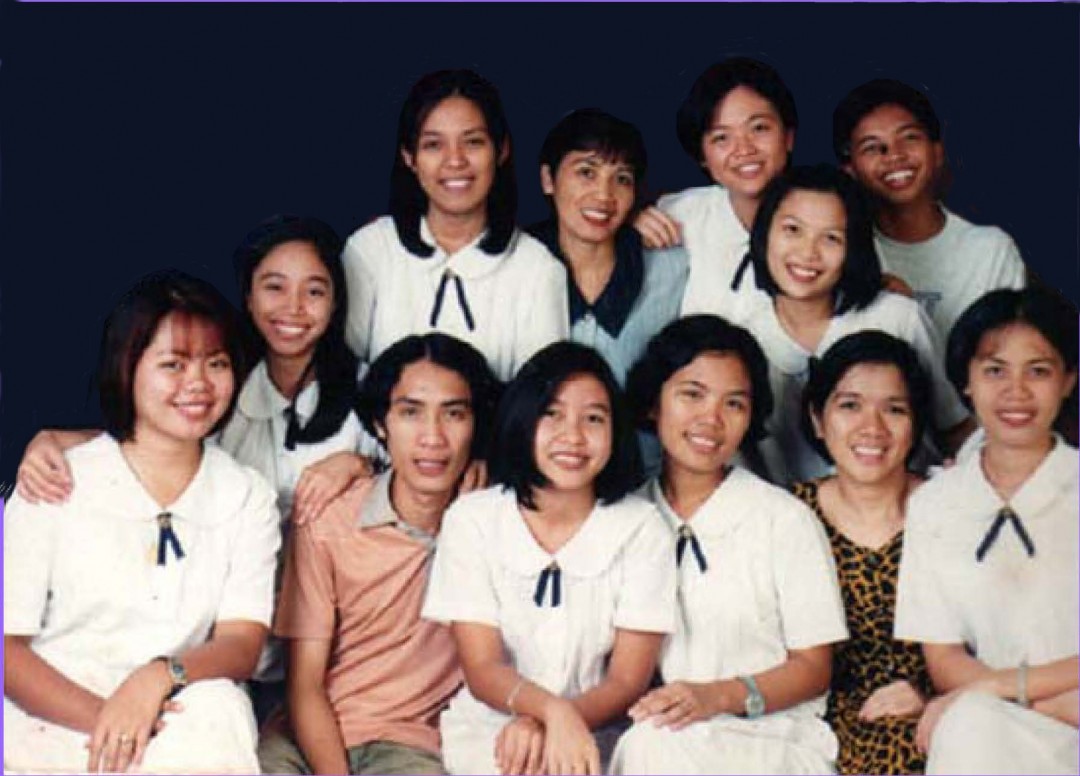Inside the crammed Atenews office hangs a large portrait of a young lady. It has been with the student publication for more than a decade, displayed on one of its walls as if to give her a perfect view of the clattered papers, the busy computer screens, and the student journalists hunched over their works. As if to give her a glimpse of her student life before she was mercilessly killed this same day, on the fifth of April, 15 years ago.
Benjaline “Beng” Hernandez may be an unfamiliar name for some today, even to Ateneans who walked on the same campus where she can be once found studying, writing poems, or doing her work as an editor of the student publication. But for student activists and journalists, for the masses who once worked with Ate Beng, for the alumni and current members of Atenews, she is more than a portrait we place as a display.
She was martyred on April 5, 2002 at the Arakan Valley when she was doing a fact-finding mission on the Tababa massacre that happened the previous year. While having lunch with the farmers, she was shot by a member of the Citizen Armed Force Geographical Unit (CAFGU). She had her arms raised, pleading to the perpetrator not to harm them as they were civilians. What she received as a response were gunshots on her breast and her head.
Atenews and progressive groups like the Karapatan-Southern Mindanao where she was secretary general and the College Editors’ Guild of the Philippines (CEGP) where she was vice-president for Mindanao, lamented her death and condemned the killings of innocent journalists in the country. This lamentation continues as more and more student activists are killed in a state that is supposed to secure them.
Tyrone Velez, also a former Atenews editor, remembers Ate Beng and his encounters with her before she was killed. He said that he first met her in a strike camp when she was still a member of a socio-political organization in Ateneo de Davao.
“One thing that caught my attention with Beng is that she always asked questions,” Tyrone said.
He shared how Ate Beng occasionally visited the strike camp and asked what was happening.
“Later on, perhaps her enthusiasm showed that she wanted to be part of Atenews,” he expressed.
When she sooner became part of CEGP, she began to be more active and committed not only to writing but also engaging with and serving the masses.
Tyrone later on knew Ate Beng’s personal background. She was from a working class family and it was her uncle that supported her education from high school to college. To survive studying, Ate Beng had to write book reports for her classmates in exchange for a small amount of monetary allowance. In Ateneo de Davao, she was a Literature student and one of her teachers, Agustin “Don” Pagusara, described her as one of the most promising writers in the city.

Benjaline “Beng” Hernandez (first from top left) with some of the former Atenews members and editors. Photo from Davao Today
“One thing I admired about Beng was her ability to write,” Tyrone said. “But I knew her very briefly because I met her on 1998 and four years later she was gone.”
The last time that she met Ate Beng was when she was about to leave for Arakan Valley to continue the fact-finding mission. According to Tyrone, their last conversation was when she asked for allowance from him.
“Pabili naman ng tsinelas” were Ate Beng’s last few words that Tyrone remembered.
He also shared that Ate Beng was quite apprehensive about going to Arakan Valley because she worried that something harmful might happen.
“But I told her maybe it’s natural for her to feel uneasy kasi alam naman nating ganoon ang trabaho,” Tyrone said. “But I told her, ‘take care, you know what to do,’ not knowing that few months later, I would receive a text from other guilders and knew about her death.”
The event was saddening for him and during the funeral he heard different statements from support groups also asking for justice for Ate Beng’s death.
“We were able to transform that moment of grief into rage,” he said.
Ate Beng’s death, however, was also an inspiration for Tyrone and various other progressive groups and student activists to continue fighting like what she did, especially now that, as if Ate Beng’s death was not enough, more and more farmers, activists, and journalists were killed. So long as these killings continue, justice is never served to Ate Beng and her family.
It may have been fifteen years since the death of Ate Beng, but it would be an insult if the whole Ateneo community would forget her. She was one of the very few Ateneans who had genuinely sought for social justice, getting out of the university to stand up for others. Even more challenging is how every Atenean should engage on various issues like the continuing militarization in ancestral domains, the endless grabbing of lands by large mining companies, and the seemingly innumerable injustices in the country – the same issues that Ate Beng fearlessly fought and died for.
Today, whenever a student points at the large portrait of Ate Beng inside the office, asking who she was, we never hesitated to describe her as a martyr and we forever anchor what we do inside the publication to the principles that Ate Beng once stood for.
Perhaps, for different progressive groups, she was an activist. For her previous educators inside the university, she was a poet and a literary enthusiast. For her fellow members of the student publication, she was a courageous journalist, an inspiration, an Ate. Everyone who knows her, from people from the masses to the individuals who once worked with her to her family and relatives, she will forever be remembered as a young hero.